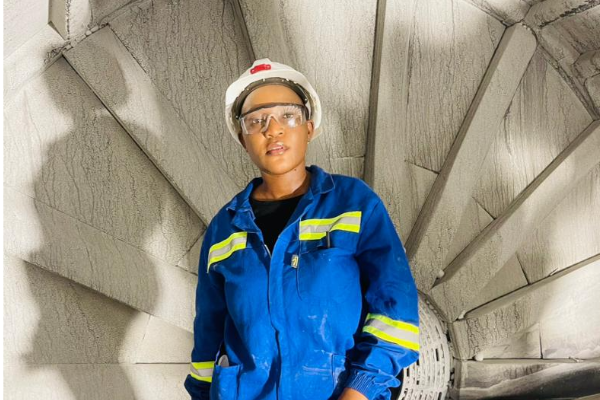The mining industry is evolving rapidly, with technology, safety, and leadership playing increasingly crucial roles. Mining Zimbabwe recently posed a thought-provoking question to students and graduates on Facebook: What skill should universities or institutions focus on more? The responses revealed significant gaps in current mining education and highlighted areas for improvement.
Here is what students and graduates had to say.
1. More Industry Experience and Practical Training
One of the most common concerns raised was the need for more hands-on experience while studying. Tendai Chivhima emphasized the importance of structured vacation work during academic breaks, arguing that it should be made mandatory. This sentiment was echoed by others who believe practical exposure beyond attachments is essential in bridging the gap between theory and real-world mining operations.
Tendai Chivhima emphasized: “Students should be given the opportunity to gain industry experience while studying, not just during attachment but also through structured vacation work. Making vacation work mandatory during academic breaks would allow students to build practical confidence.”
2. Mining Safety and Equipment Training
Mining safety emerged as a critical concern. Thadiwanashe Musande Mudyiradimah stressed that institutions must reinforce the importance of safety protocols and equipment maintenance. Many graduates enter the workforce without adequate training in these areas, which could have life-threatening consequences.
Thadiwanashe Thassissió Musande Mudyiradimah pointed out: “Mining safety is no joke. I think universities and institutions should focus more on teaching students about safety protocols and equipment maintenance. Hands-on training and simulations should be a core part of the curriculum.”
Similarly, Tariro Mafukidze highlighted: “Safety as a student yourself first.”
Samuel Mushuku added that mining engineers and technicians should be trained to operate key mining equipment, such as drill jumbos, bolters, Load Haul Dumps (LHDs), and utility vehicles.
3. Leadership and Emotional Intelligence
While technical knowledge is essential, Kundai Audrey Kang pointed out that leadership and emotional intelligence are often overlooked in mining education. Effective communication and decision-making skills are crucial for managing teams and navigating workplace challenges.
Kundai Audrey Kang observed: “So far they have been hammering us towards innovation, but leadership skills are missing. Emotional intelligence should also be a focus.”
Bonginkosi Babrah Moeketsi humorously added: “Answering why you are not blasting! 🤣 Also, people skills because we deal a lot with different kinds of people”.
4. Mastering Mining Software and Technology
The mining industry is becoming increasingly digital, yet many students graduate without proficiency in essential mining software. Careen Chihlangu and Delighty Chewe highlighted the need for universities to introduce industry-standard software such as METSIM, mine planning tools, and process control systems. Automation and digital transformation are shaping the future of mining, and students must be equipped to keep up.
Careen Chihlangu stated: “Softwares, and keeping up with the industry’s evolving technologies.”
Delighty Chewe added: “Designing, process control, and mine planning software should be taught at universities. It’s regrettable that we only get to know of METSIM and other key programs at the processing plant.”
5. Application and Career Readiness Support
Several comments, including those from Tinomutenda Puramu and Oscar Beyi, pointed out that many students struggle with job applications and securing attachments. Universities should offer training on writing CVs, applying for positions, and networking with industry professionals to ease this transition.
Tinomutenda Puramu remarked: “They have to teach students how to write CVs and how to apply to companies because this is one of the reasons many struggle to get attachments.”
Oscar Beyi echoed this sentiment, saying: “Universities should assist students in securing attachments because some of us are stuck due to a lack of opportunities.”
6. Blasting and Licensing Requirements
A recurring theme in the discussion was the need for early exposure to full blasting license (FBL) and mine blasting license (MBL) modules. Commenters such as Kelvin Murira, Thando Matshazi, and Webster Dube stressed that these certifications should be offered while students are still in school to ensure they are job-ready upon graduation.
7. Rock Mechanics and Ventilation Engineering
Linda Chitsvare suggested that universities should introduce standalone certifications in rock mechanics and rock engineering instead of offering them as just modules. Gilbert Madhuze added that ventilation engineering should be emphasized, given its critical role in underground mining operations.
8. Advanced Data Analytics and Geospatial Analysis
Modern mining requires strong data interpretation skills. Israel Chiradza and Munya Musariri called for universities to integrate GIS mapping, geospatial analysis, and data analytics into the curriculum to help students better understand mineral exploration and resource management.
9. Business and Cost Management in Mining
Beyond technical skills, Revel Simasiku Malundu pointed out that cost-reduction strategies are often ignored in mining education. Understanding how to optimize operational costs is a vital skill for future mining managers and investors.
10. Industry-Driven Curriculum Development
Aubbrey Njolomole summed it up well: “You can’t focus much as a student unless the industry tells you what to focus on. The industry dictates what universities need to emphasize.” This highlights the need for stronger collaboration between academic institutions and the mining sector to ensure that students are learning skills relevant to industry demands.
The discussion revealed a consensus on the need for more hands-on experience, enhanced safety training, leadership development, software proficiency, career support, and industry-relevant certifications. Addressing these gaps will better prepare mining graduates for the workforce, ensuring that they contribute effectively to Zimbabwe’s mining sector.
Universities and training institutions must take these insights into account to bridge the divide between academia and industry expectations.





